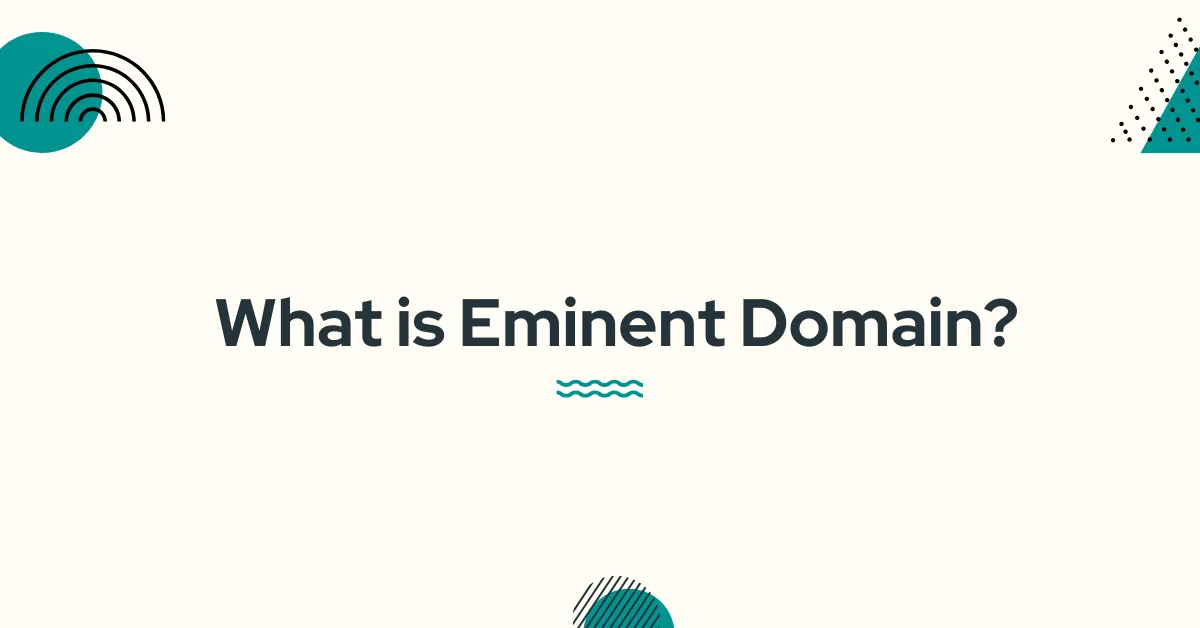Understanding Eminent Domain: A Comprehensive Guide

Eminent domain is a legal rule that lets the government take private land if it is needed for something that helps the public, like a road or a school. When this happens, the government must pay the landowner a fair amount of money.
This can be confusing or upsetting for people. They may ask: Why does the government want my land? How does this work?
Learning about how eminent domain works can help people understand what is happening and know what their rights are.
What is Eminent Domain?
Eminent domain refers to the power of the state to seize private property, typically for projects deemed beneficial to the public, such as highways, parks, or schools. While this process can theoretically apply to a variety of properties, there are stringent regulations in place designed to protect property owner rights.
This payment should match what the property is actually worth, making sure landowners don’t lose money when the government takes their land.
The Process of Eminent Domain
Eminent domain is the official way the government can claim someone’s private land for community projects while paying the owner fairly. The process begins with identifying a public need, such as a road, school, or utility. Authorities then notify property owners and conduct appraisals to determine just compensation.
If the owner disagrees, they can challenge the offer in court. After compensation is settled, the government acquires the property and proceeds with the project. While necessary for development, eminent domain can be controversial, especially when its use affects communities or appears to benefit private interests more than the public.
Common Misconceptions about Eminent Domain
Many misconceptions surround eminent domain, often leading to confusion among property owners. One prevalent myth is that the government can take any property without reason.
In truth, properties must meet specific criteria, and land use must be planned for a public purpose. Additionally, the right of entry for property assessments requires prior notice and adherence to legal regulations to protect property owner rights.
Compensation and Fair Market Value
When property is seized through eminent domain, understanding compensation is crucial. The government must give proper payment that should equal what the property is really worth.
The real worth can be figured out using different things like nearby property sales, professional evaluations, and what the land means to the owner. If the offered compensation does not meet the owner’s expectation, they have legal avenues to dispute the amount.
Legal Protections for Property Owners
Landowners dealing with eminent domain have specific legal rights that protect them. They can fight the government’s choice in court by saying the taking isn’t for a real public need or the money offered isn’t enough. Hiring a smart lawyer who focuses on eminent domain cases can really help property owners handle these complicated legal matters.
Empowering Property Owners
Dealing with eminent domain can be confusing and stressful for property owners. But by learning how it works, knowing your rights, and understanding the laws that protect you, you can stand up for yourself.
When your land could be claimed, you should speak with an attorney to keep your legal rights safe. Knowing about eminent domain can help you now and in the future as a property owner.
